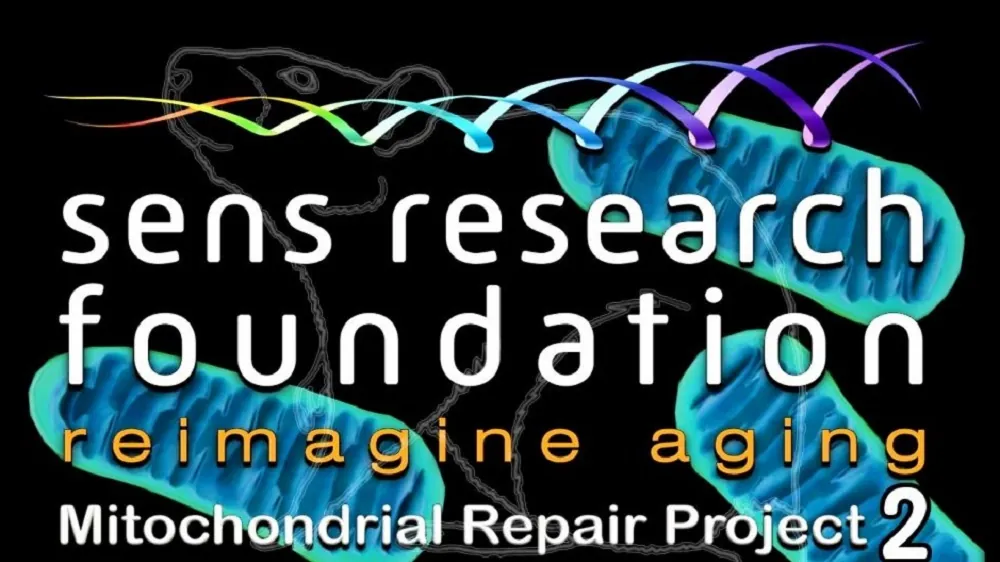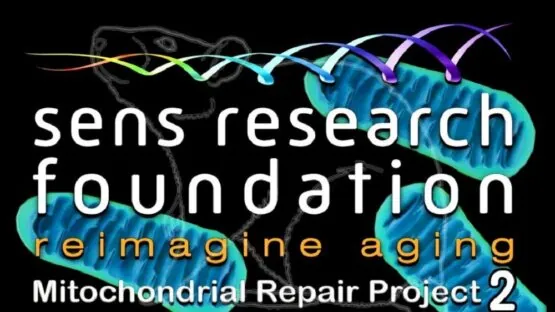Financed by Lifespan.io’s crowdfunding efforts, SENS Research Foundation has engaged in fruitful research into ways of dealing with mitochondrial dysfunction, the gradual loss of function of our cells’ power plants. Here, the organization reports its successes in handling this aspect of aging.
The cellular machinery and higher-level structures of our bodies inevitably damage themselves as part of keeping us alive. While our bodies have mechanisms to prevent and repair some aspects of this damage, the repair is never complete. Over time, damage to our cells and tissues accumulates in our bodies, causing them to become increasingly dysfunctional with the eventual endpoint of aging and its many diseases.
At SENS Research Foundation, we work to develop seven practical repair strategies into rejuvenation biotechnologies that can prevent, defang, or remove this damage to restore the health of our cells and tissues and thus maintain or restore youthful health and vigor.
The MitoSENS program at SENS Research Foundation is working to develop longevity therapeutics to repair or render harmless the damage that drives the age-related decline in the function of our cellular power plants: the mitochondria. The most important kind of age-related mitochondrial damage is large deletions in the mitochondrial DNA, which are the ultimate result of the toxic byproducts of cellular energy production. Such large deletions are prime culprits in multiple specific age-related pathologies, such as Parkinson’s and Alzheimer’s diseases, as well as sarcopenia, the loss of mass and disproportionate loss of power in aging muscles. Such mutations also drive broader pro-aging effects across the body.
Using a biotechnology called allotopic expression, the Boominathan Lab at SENS Research Foundation is engineering “backup copies” of the genes normally harbored in the mitochondria into the safe environment of the nucleus, separating the damage-causing molecules in the mitochondria themselves from the genes that are essential for cellular energy production.
In 2015, SRF launched a crowdfunding campaign for the allotopic expression of mitochondrial genes with the help of Lifespan.io, which enabled us to ramp up our efforts. This additional funding was instrumental in establishing a proof of concept for this strategy. In collaboration with renowned mitochondrial scientists Dr. Martin Brand and Dr. Birgit Schilling of the Buck Institute, the MitoSENS team showed that the allotopic expression of two mitochondrial DNA genes restores critical metabolic functions in cells derived from a patient with a severely disabling mutation in the mitochondrial ATP8 gene.
Subsequently, to validate the gene therapy product in a living organism, they teamed again with Lifespan.io for a second crowdfunding campaign. Using the maximally modifiable mouse model, the researchers at SRF placed a single copy of ATP8 in a safe harbor locus in the nucleus. They then crossed this allotopic ATP8 mouse with a mouse model that harbored a specific mutation in its ATP8 gene to see if their allotopic ATP8 could restore normal energy production and metabolism in the face of a mutation in the inherited mitochondrial gene.
Careful breeding and genotyping confirmed that the allotopic ATP8 is robustly expressed and is passed down through at least four generations in the progeny. And, on the critical question, the allotopic ATP8 gene works: the mice’s cells express the allotopic protein, its mitochondria take the protein up, and it effectively assembles into the correct complex of the mitochondria’s energy-producing machinery without any adverse effects. Studies are ongoing to quantify how much the engineered ATP8 displaces the mutated mitochondrial version of the gene, and the team hopes to publish these results soon.
Thanks to everyone at Lifespan.io and all the crowdfunding donors who helped make this amazing advance possible! We are several large steps closer to human mitochondrial gene therapies thanks to you.



